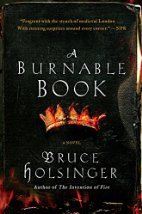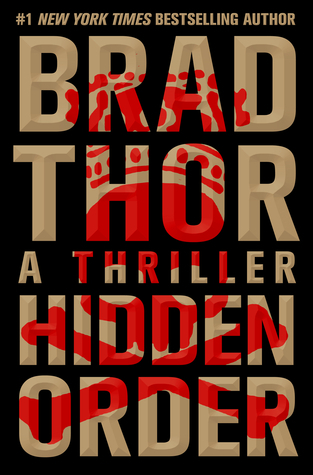
London, 1385. Surrounded by ruthless courtiers—including his powerful uncle, John of Gaunt, and Gaunt’s flamboyant mistress, Katherine Swynford—England’s young, still untested king, Richard II, is in mortal peril, and the danger is only beginning. Songs are heard across London—catchy verses said to originate from an ancient book that prophesies the end of England’s kings—and among the book’s predictions is Richard’s assassination. Only a few powerful men know that the cryptic lines derive from a “burnable book,” a seditious work that threatens the stability of the realm. To find the manuscript, wily bureaucrat Geoffrey Chaucer turns to fellow poet John Gower, a professional trader in information with connections high and low. Gower discovers that the book and incriminating evidence about its author have fallen into the unwitting hands of innocents, who will be drawn into a labyrinthine conspiracy that reaches from the king’s court to London’s slums and stews–and potentially implicates his own son. As the intrigue deepens, it becomes clear that Gower, a man with secrets of his own, may be the last hope to save a king from a terrible fate. (From Goodreads)
Definitely not a book to be read in a quick setting. Are you into literary figures? Historical fiction? Historical mystery filled with spies and intrigue? Something that takes place in the Middle Ages? All of the above in one book? Sure! Let’s take it!
I’d have to say, there can be no better description of the Middle Ages than in this book. Everything was so visual and well written. The setting itself has good amounts of description, the characters definitely helped as well. They even had the mannerisms and speech of the time.
Speaking of characters.
Oh Chaucer. No. Just no. I don’t like you. He’s not exactly painted in the most best of light here is he? Manipulative, wife stealer, even with his supposed close friend he’s not upfront and honest with. You definitely have sympathy with Gower here. Even though he has a questionable job and past with his son Simon, he’s still a much more likable character than Chaucer in my opinion. Other characters that I liked; Edgar/Eleanor – the story arc with Millicent and Agnes was a good one. I enjoyed their side of the story with the ‘dregs’ of society. Another character I liked, Hawkwood. Yes he’s an odious villain that oozed all the horrible things you didn’t like. But he was such an awesome villain! Cold, calculating, and not one to trifle with when you get on his bad side and think you can get away with (that poor sod – those who read the book should know what I’m talking about)
The plot itself was pretty good. Lots of plot twists and turns. You’re left peeling layer after layer of intrigue and mystery while you get to the bottom of it. Once you had it figured out there’s still more left to figure out. I enjoyed it! There’s something about all the layers of intrigue that makes it a more compelling read.
However, a couple of things that made this read a not so easy one. The amount of characters. Quite a few to keep track of. So this isn’t the type of book that you can drop and come back to after a while (I mistakenly did that unfortunately, as life got in the way). You need to take you time, get to know the characters, the plot and how everything comes together. It sometimes can get a little confusing so some extra attention is needed while reading this book. Also, have a dictionary beside you. I suppose to keep with the medieval thing, there’s some medieval terminology that you’ll need to familiarize yourself with. It adds more to the book but I could have done without it. To be on the bright side, my vocabulary has increased with various middle age words.
Overall, take the time to read the book and enjoy. The spinning and weaving of the web and trying to find the center spot is fun and always is a treat to read when figuring out a historical mystery. Greatly recommended for Hist-fic fans.
I give it a 6 out of 10.
Thank you William Morrow for providing me a review copy!
Advertisements Share this:





